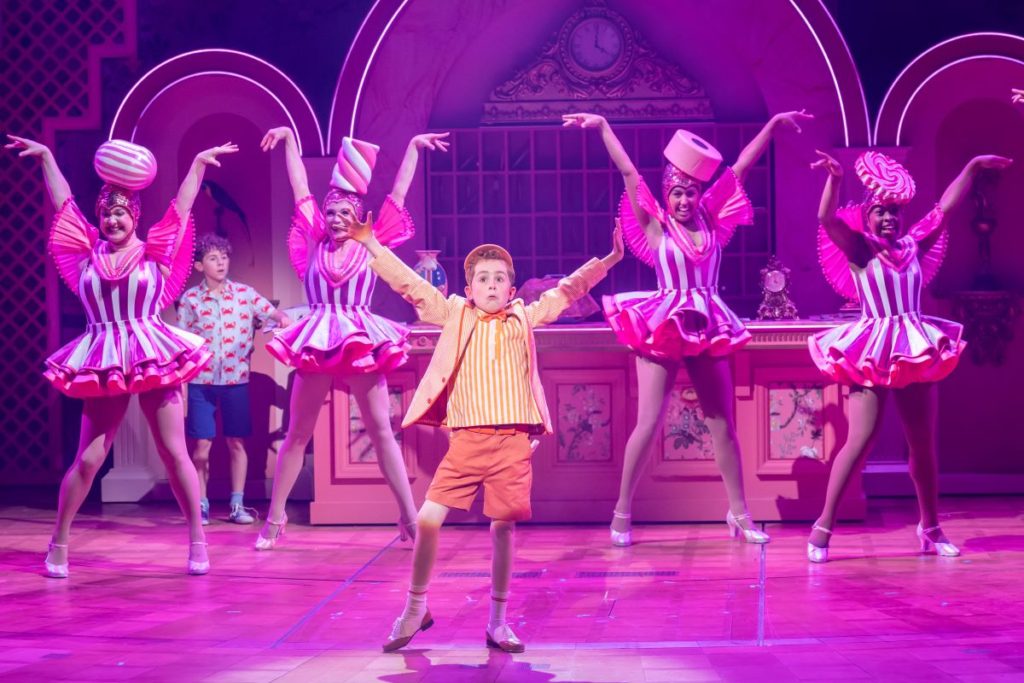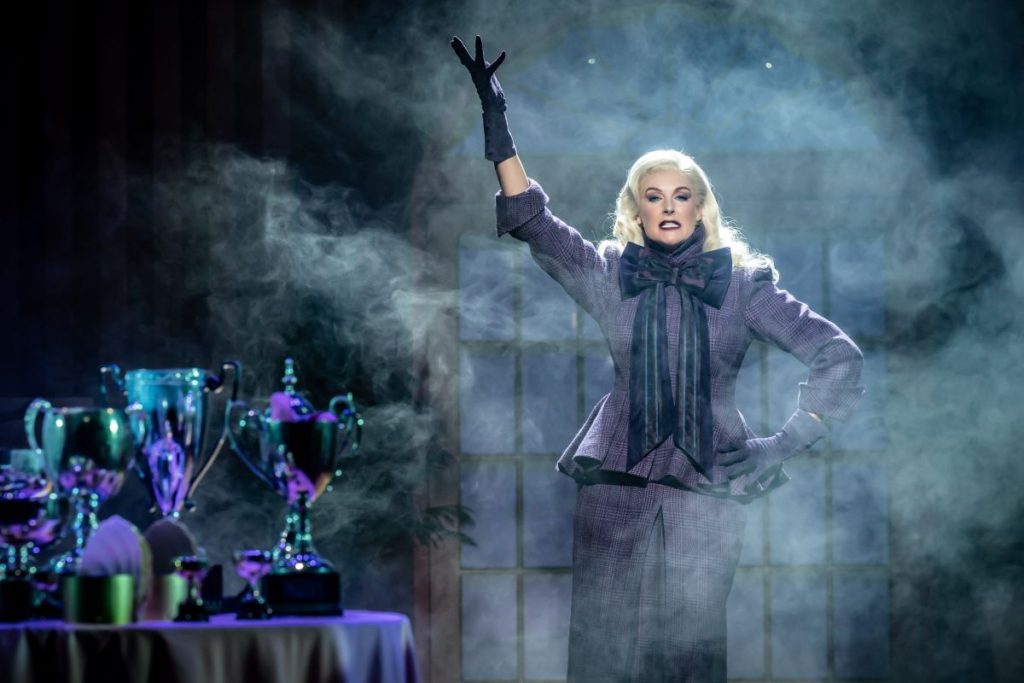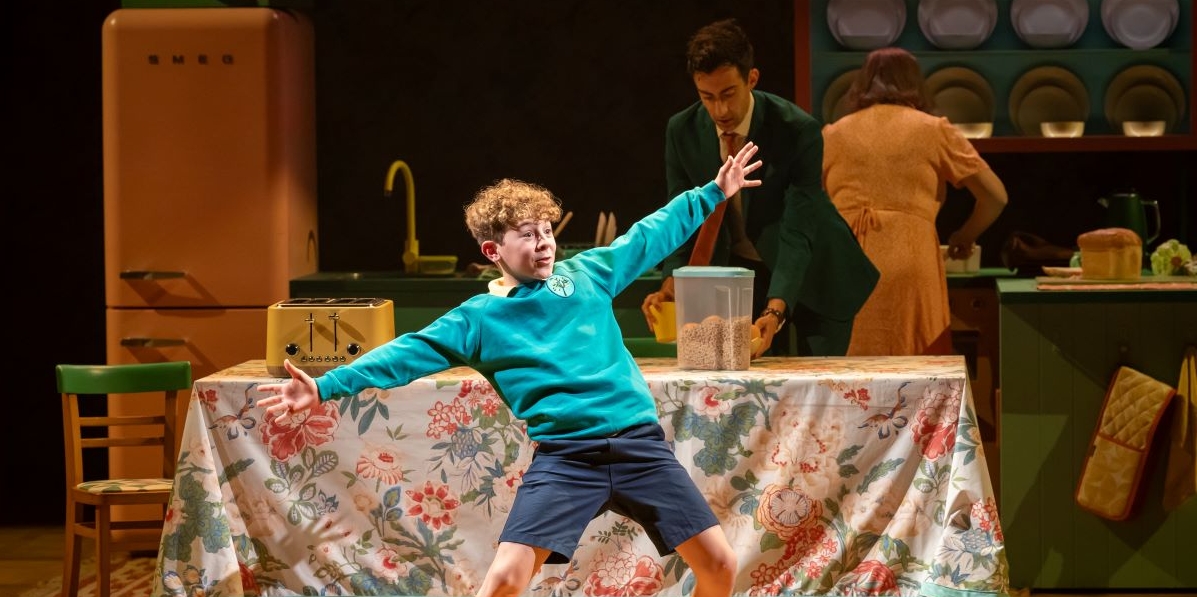Dahl’s 1988 novel undergoes a worthy theatrical adaptation, turning the eerie into the absurd and the creepy into a continuous giggle. This show has it all: fun music, colourful costumes, clever set design, and a simple yet captivating storyline lead by a skilful cast. A lot of thought has gone into this production beyond the stage itself – with a family-friendly adventure trail (approx. 40 mins to complete) inside the purple-lit building of the national theatre offering an opportunity for an extended experience.
At the start of the show, we are introduced to a group of ordinary looking ladies celebrating each other’s banal routines and unremarkable appearances. This starter musical number (‘A Note About Witches’) sets the tone for the rest of the show and announces to the audience that this is going to be a funny one. And indeed, the gloomier events in the story, such as the sudden passing of Luke’s parents, his grandmother’s heart attack and the capture of little children along with the creepiness of the witches, are approached with a tongue very much in cheek.
Luke, a newly orphaned 10-year-old, is adopted by his eccentric witch-hunting grandmother, who moves to England from Norway to raise him. In the original story it is Luke who moves to Norway, but this adaptation makes it more accessible to the local audience, taking full advantage of its setting in Bournemouth.
After suffering a heart attack, Luke’s grandmother is prescribed a relaxing beach holiday at the renowned Hotel Magnificent, where ironically a witch conference is also taking place. We are taken to the hotel and introduced to its glory by the uptight yet hopeful manager Mr Stringer, who is appalled by the ordinariness of Luke and his grandmother and dotes on the ridiculously vain Mr and Mrs Jenkins. As their perfect son Bruno breaks into song hailing his love of all things sweet (the joyous ‘Bruno Sweet Bruno’), he accepts poisoned candy from the seemingly charming witches, turning him into a mouse. Later, as the grand high witch unveils her plan to get rid of all of England’s children, Luke is also caught and turned.

There is a sense of expectation as the boys’ transformation into mice approaches – how will this be achieved on stage? The creative thought behind this does not disappoint, with the costumed actors transitioning back and forth between furry little mechanical mice and visual effects; The audience is delighted when the little mice scamper across the floor to hide inside a piano, from which the boys’ heads pop out as the flow of their conversation continues uninterruptedly.
Luke is determined to defeat the grand high witch and together with his grandmother he steals the potion from her hotel room, planning to drop it in the pea soup that is meant to be served at their conference. We are then taken backstage to the kitchen, where the resigned and bothered staff muck about in a fantastically hilarious demeanour, culminating in a ridiculous and catchy song as they prepare to serve up the soup (‘soup time’).

The original ending of the book is kept here, and is coherent with the show’s positive take, when under different direction it could easily have felt demoralising.
The excellent performances by Katherine Kingsley (the demanding and formidable grand witch), Sally Ann Triplett (the rebellious, stubborn grandmother) and Daniel Rigby (the grovelling Mr Stringer), are met with a younger generation of talented young actors; In particular Bertie Caplan (Luke) and Cian Eagle-Service (Bruno), who give it their all.
It feels a tragedy for this terrific show to be shortly lived, as its wit and joy are deserving of a long run instalment such as the celebrated Matilda.

